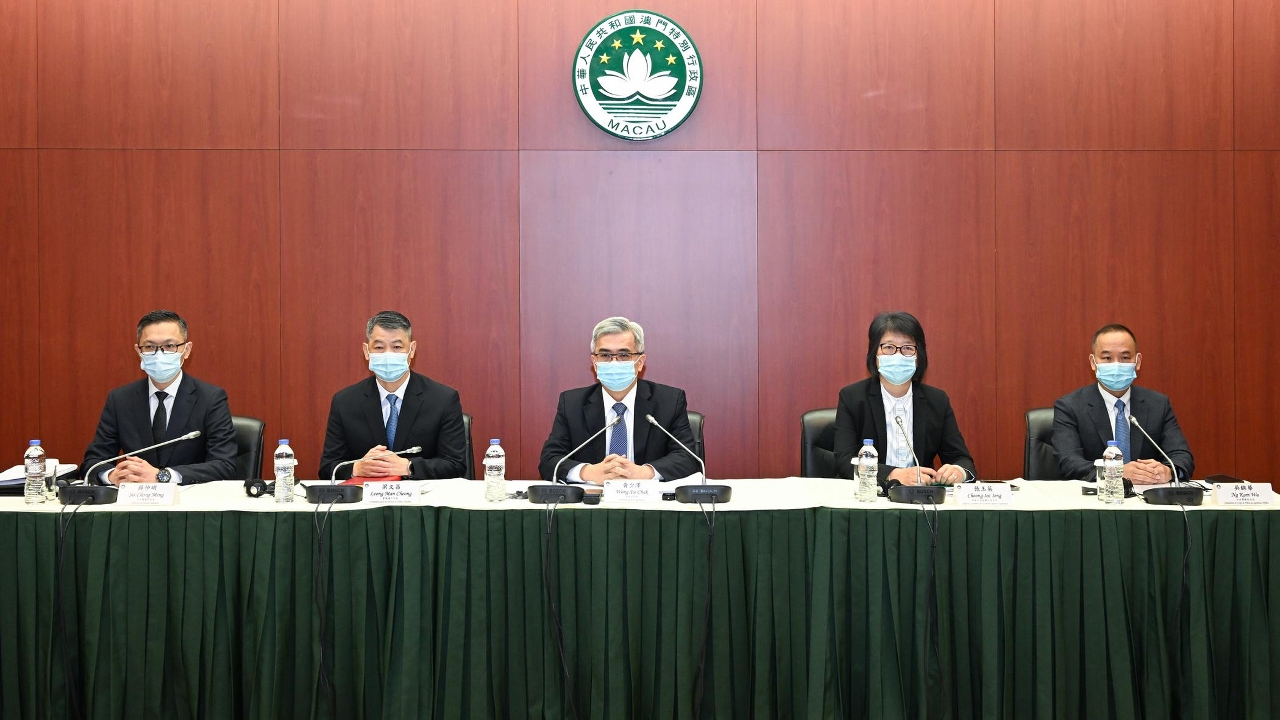
Crime-case statistics recorded by the police show year-on-year decreases in full-year 2022 in a number of crime categories. The data show Macao remains a secure and safe city, said today the Secretary for Security, Mr Wong Sio Chak.
The tally of all forms of reported crime in Macao in 2022 was down 13.9 percent year-on-year, to 9,799 cases, according to police statistics regarding last year’s enforcement effort. The data was released today, during the first face-to-face press conference held by the Office of the Secretary for Security since the advent of the COVID-19 pandemic in early 2020.
The tallies of full-year crime cases recorded from 2019 to 2022 were, respectively, 14,178, 10,057, 11,376, and 9,799. The figures for full-year 2022 were the lowest on record in the past four years. Compared to 2021, 2020, and 2019, the 2022 crime-case numbers showed decreases of, respectively, 13.9 percent, 2.6 percent, and 30.9 percent.
Analysing the data for the three-year period marked by the COVID-19 pandemic, between 2020 and 2022, it showed a significant decrease in the number of reported crimes compared to 2019’s pre-pandemic levels. That was due to the implementation of COVID-19-related restrictions, which had had an impact on the number of visitors to Macao and on the city’s economic activities. The data related to that period also showed that Macao’s security authorities were effective in their targeted preventive measures against criminal activity.
In full-2022, there was an aggregate of 153 cases of violent crime reported to the police. That was a reduction of 102, 90, and 520 instances of such crime compared to, respectively, 2021, 2020, and 2019; representing declines of 40 percent, 37 percent and 77.3 percent. The most serious forms of violent crime – such as kidnapping, murder, and aggravated assault – continued to be either non-existent or extremely rare in Macao.
Gaming-related crimes in 2022 totalled 371 instances, a 41.6-percent decrease from 2021.
The police considered that trends in gaming-related crime coincided with fluctuations in visitor volumes to Macao, particularly because of more severe COVID-19 outbreaks in 2022 compared to 2021. Of the gaming-related crimes recorded in 2022, most instances were related to scams – the majority of them linked to illicit money exchange activities – followed by disobedience (illicit entry in a casino), and unlawful appropriation.
Speaking at today’s press conference, Secretary Wong noted there was an upward trend in crimes related to the use of the Internet, in particular theft of personal data; while crimes such as fraud and extortion had become less common due to the COVID-19 pandemic.
The security authorities would step up effort regarding inspection work and combat activities against cybercrime and continue to carry out crime prevention campaigns among the local community, stated Mr Wong.
With the launch of favourable measures for travel by the Macao Special Administrative Region Government and neighbouring regions, Mr Wong said it was expected that the number of inbound travellers would increase, and that the city’s economic activities would fully return to normal. Such a situation could pose additional challenges to Macao’s security, and could potentially lead to an increase in all forms of reported crime, added the Secretary.
The security authorities would continue to monitor closely any possible change in local security conditions and any change in the trends of criminal activity, while enhancing mechanisms for liaison and exchange of intelligence with their counterparts within the region, in order to combat effectively any criminal activity and safeguard the security and prosperity of Macao society, stated Mr Wong.


